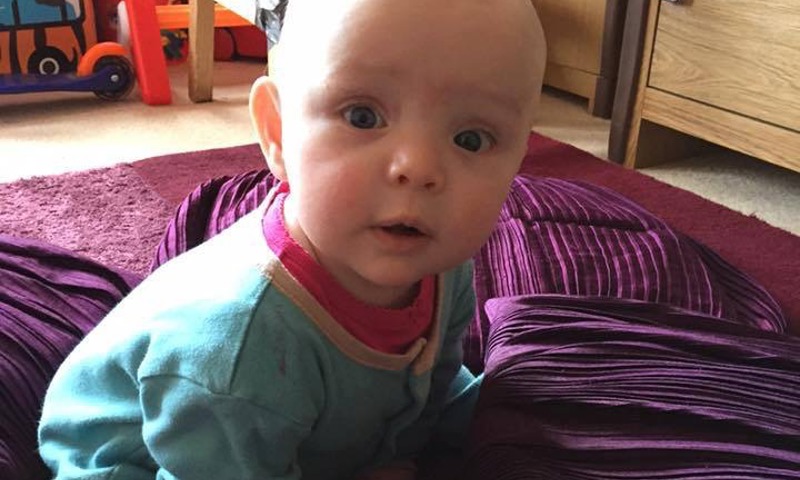Inquest into the death of Sophie Burgess, aged 11 months
Neglect contributed to the death of 11-month-old Sophie Burgess following an overdose at St Peter’s Hospital, Chertsey, a coroner has ruled.
Posted on 27 November 2020
Delivering a narrative verdict, assistant coroner Karen Henderson said Sophie was let down by “a gross failure to provide basic medical care” after she was injected with five times the required dose of an anti-seizure drug.
Sophie died 16 July, 2016 following an overdose of Phenytoin, given to her by two doctors at the hospital, despite the protestations of a nurse.
The drug was administered by hand-held syringe after an automated syringe driver pump failed to work.
But the child, vomited, went into cardiac arrest, and died, within three hours of being admitted to hospital.
Dr Karen Henderson said: “I’m satisfied Sophie would not have died when she did if five times the amount of phenytoin had not been administered by the nurses.
The nurses involved could not recall who prepared the medicine, the inquest heard, nor was the dosage checked by the consultant.
The coroner said she would write a Prevention of Future Deaths report explaining the need for medical staff to check the amount of drugs prepared before being administered, particularly when they have the ability to kill.
Sophie had been taken to hospital following a seizure, the latest she had suffered in a series triggered by a reaction to infections.
After an attempt to administer the anti-seizure drug using an automated syringe-driver failed, it was decided a doctor would administer it from a handheld syringe, despite a nurse saying the drug was not needed and that giving it by hand was against the hospital’s protocol.
The inquest heard a doctor had prescribed 200 milligrams of phenytoin for Sophie. However up to 1,000 milligrams could have instead been prepared in the syringe, an expert witness said.
The consultant said she was unaware the phenytoin in the syringe was not diluted, and she trusted nurses to ensure the dosage was correct.
She also said she decided the drug was needed as she remained “very concerned” about Sophie’s condition, fearing she may suffer more seizures.
The inquest into Sophie’s death began in June, 2017, but was halted for a police investigation following the evidence about the Phenytoin dose.

It is unacceptable that Sophie’s parents have had to wait four years for the investigative process into their daughter’s tragic death to run its course. Emma and Gareth deserve answers about what has gone wrong in the police and coronial procedures for these delays to happen."
Suzanne White, lawyer for Sophie's parents
No police action has been taken, and the inquest was resumed on Thursday, 26 November, 2020.
The inquest concluded on Wednesday, 16 December, the coroner said: "Whilst I accept that it is not unreasonable to give Phenytoin, I accept that the administration of it when it was given was not time-critical. It did not need to be given at the time it was given.
"Inexperience and perhaps more importantly a lack of understanding of that inexperience by the consultant paediatrician has played a large part in the decision to give Phenytoin at the time it was given and indeed how it was given.
"I accept this inexperience would not have been obvious if the correct concentration had been prepared, however, it showed itself because the correct dose was not prepared and as such I am satisfied that inexperience on behalf of the consultant paediatrician and a lack of understanding of the inexperience and also to a lesser extent the paediatric trainee, played a more than minimal role in Sophie's death."
Her parents, Gareth and Emma Burgess, made the following statement:
“Sophie was a bright and happy child, always laughing and smiling. She was a joy to be around and made our family complete.
"Losing her suddenly, in this way, just before her first birthday, destroyed the life we knew.
"When Sophie was taken to St Peter's Hospital, we thought she would be safe and well cared for. Instead, we watched her die, due to their multiple failures. The pain of her death will never leave us and we grieve for her every day.
“Sophie was the delight of our lives, we loved her with all of our hearts and not a day goes by without her in our thoughts.
“We have always known from the outset that what happened to Sophie was preventable and we have had to fight over the last four years to make sure that the mistakes that were made on the day of her death were made known. We wanted to be given a truthful account of what happened on that day and now hope that those responsible will be held accountable.
"We have had to face essential information being mislaid, altered or not detailed from the events and critical testimony not given in our search for the truth. Our beautiful daughter died and we want to ensure that this can never happen again to another family.
“We are disappointed with the conclusion of the coroner today, we feel that Sophie’s death was more than neglect and, for Sophie’s sake, we will be pursuing a case to that end.
Their solicitor, Leigh Day partner Suzanne White, said:
“It is unacceptable that Sophie’s parents have had to wait four years for the investigative process into their daughter’s tragic death to run its course. Emma and Gareth deserve answers about what has gone wrong in the police and coronial procedures for these delays to happen.
“Secondly, Sophie’s is another unnecessary death at St Peter’s Hospital, Chertsey as a result of an overdose of the anti-seizure drug Phenytoin. In the case of Caroline Pearson-Smith, the coroner ruled that there had been gross failures in her care. Clearly something is amiss in the use of this drug by the Ashford and St Peter's Hospitals NHS Foundation Trust.”




